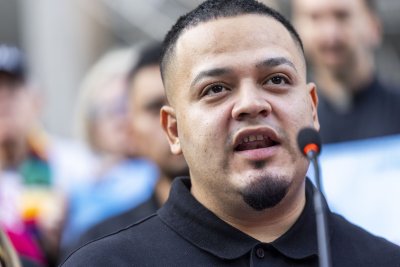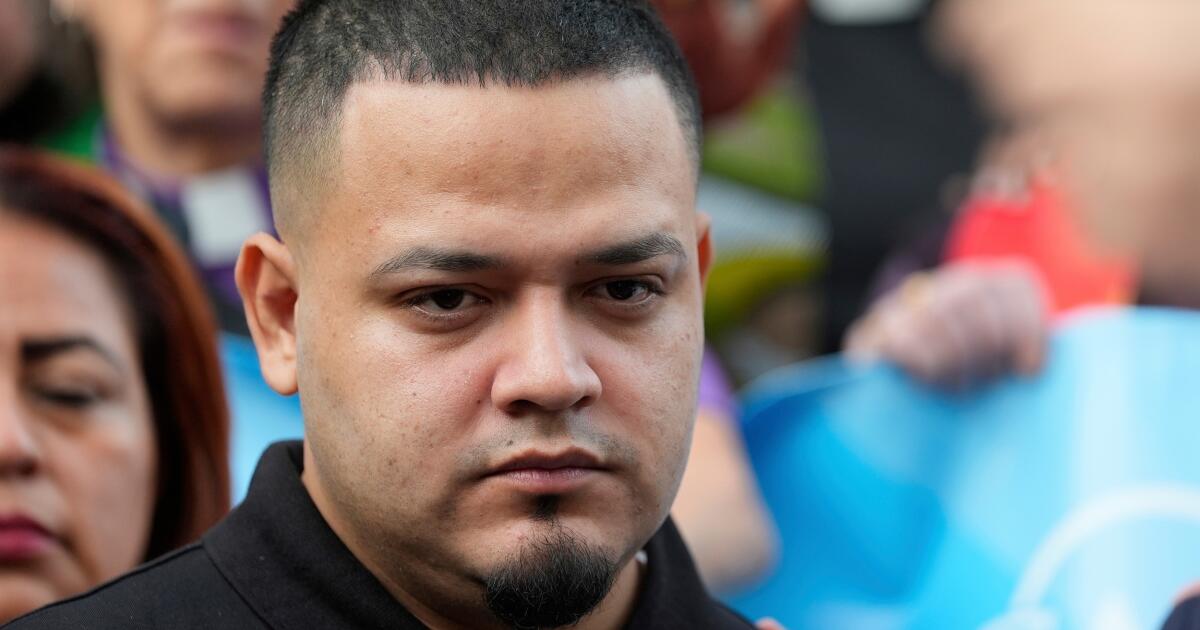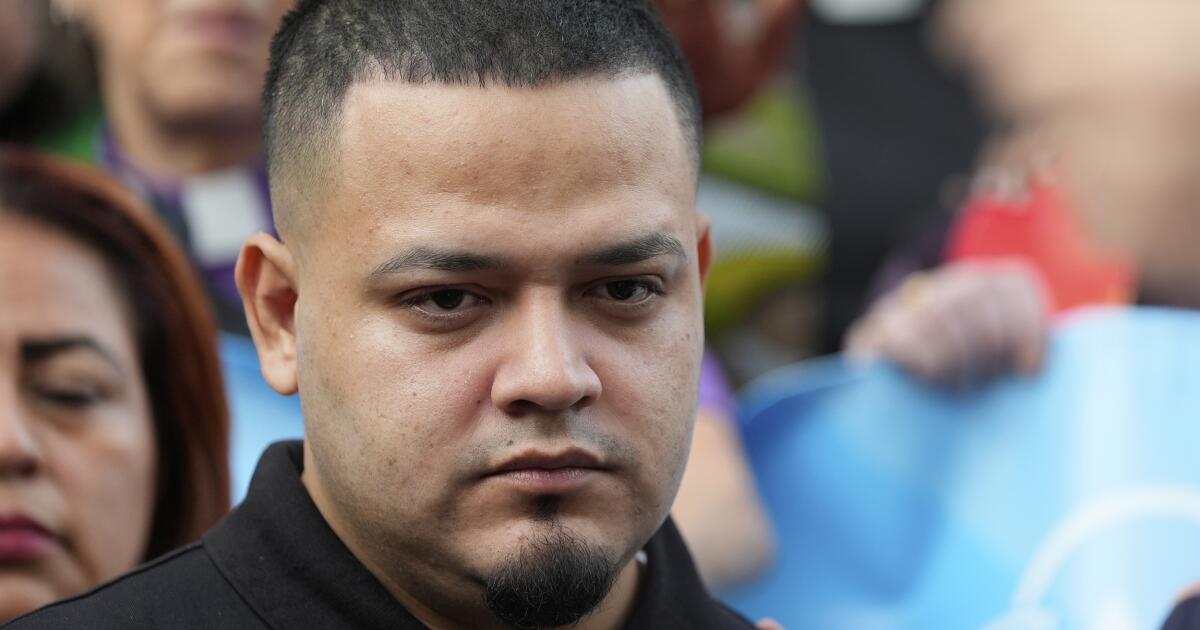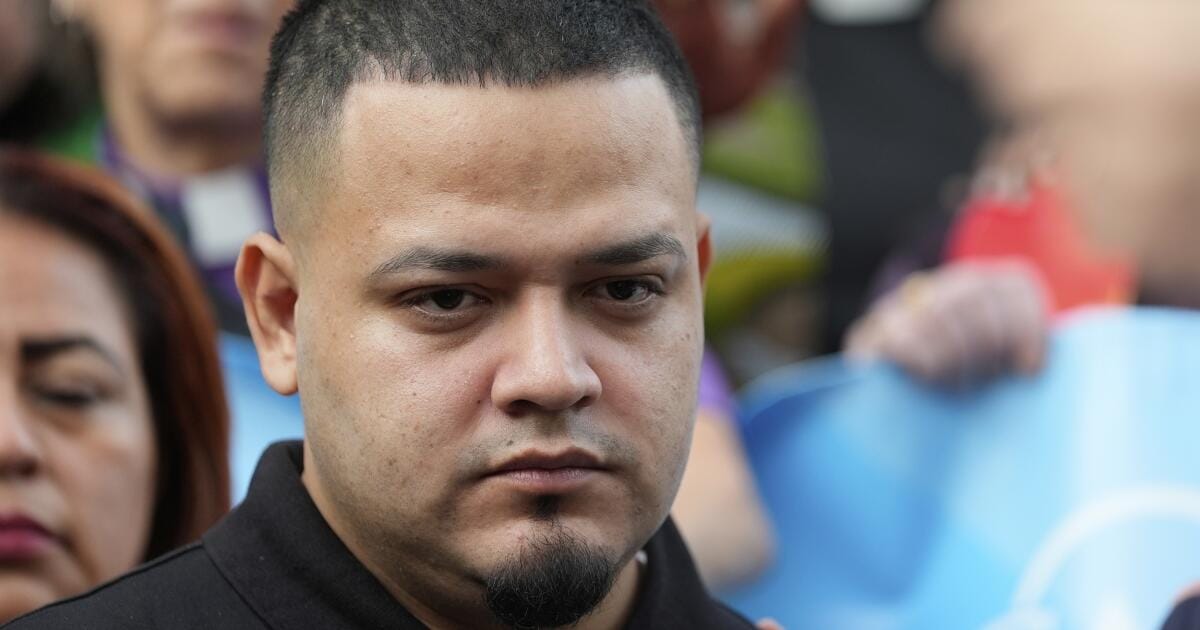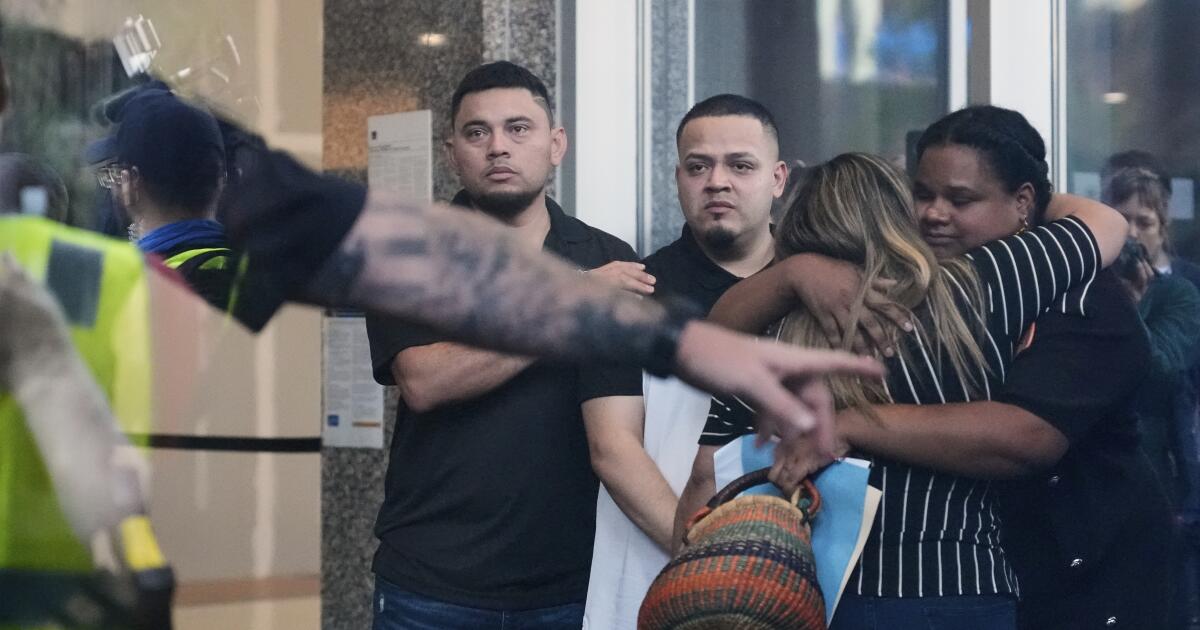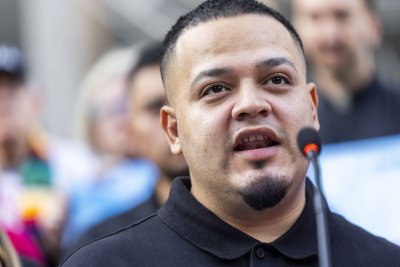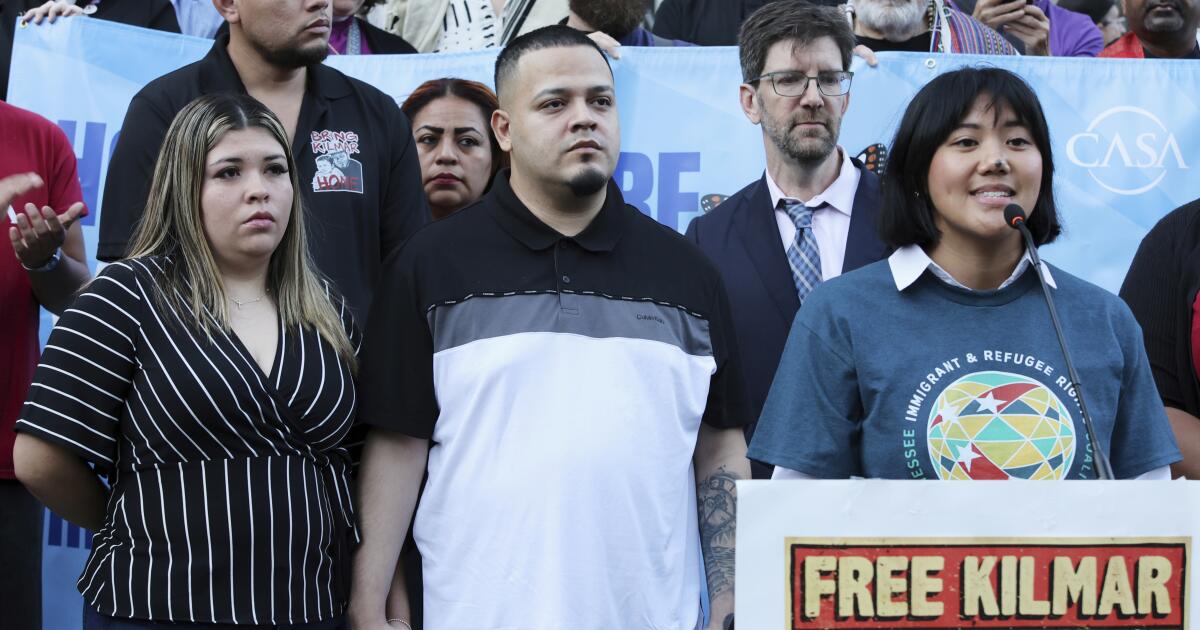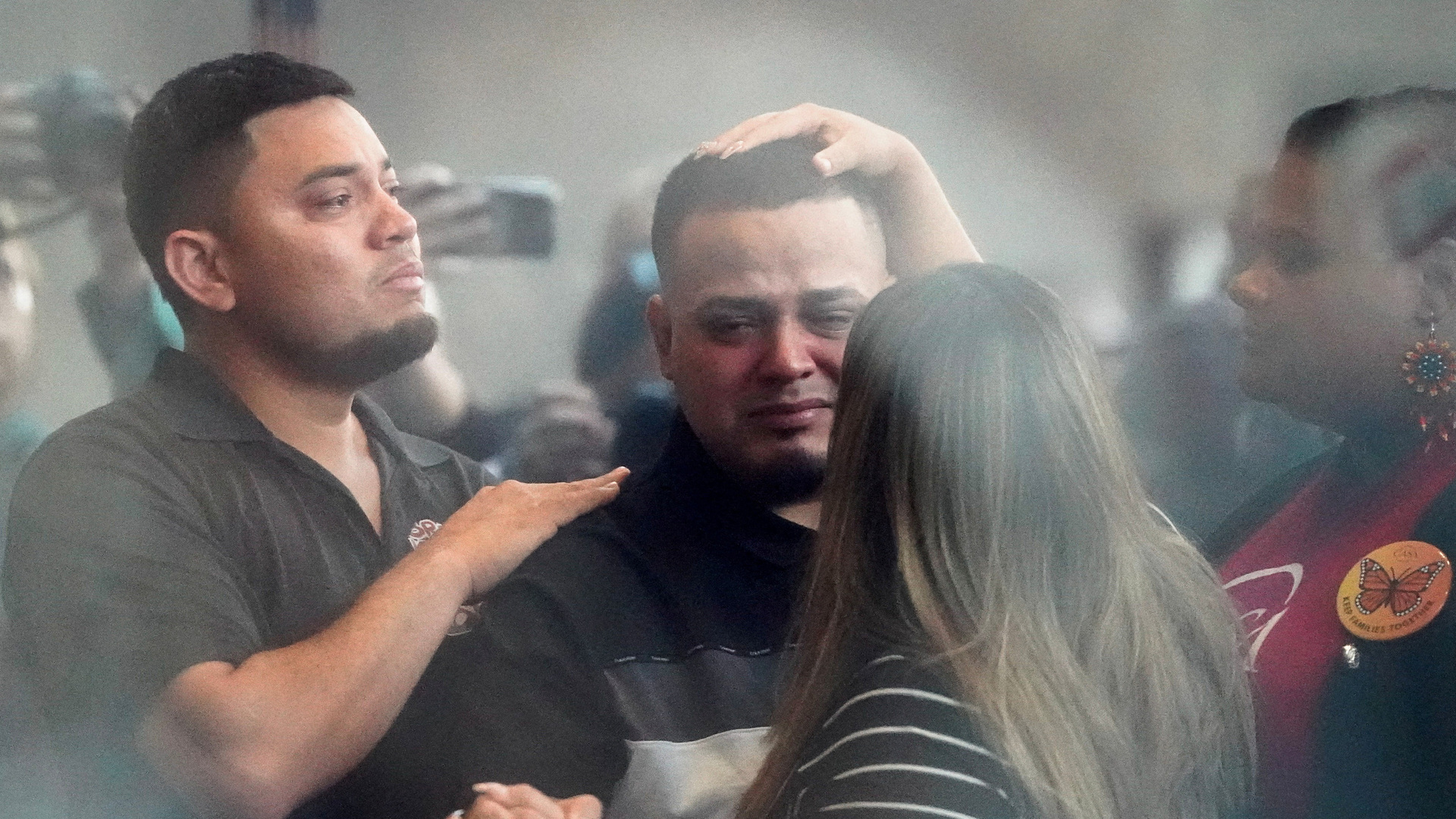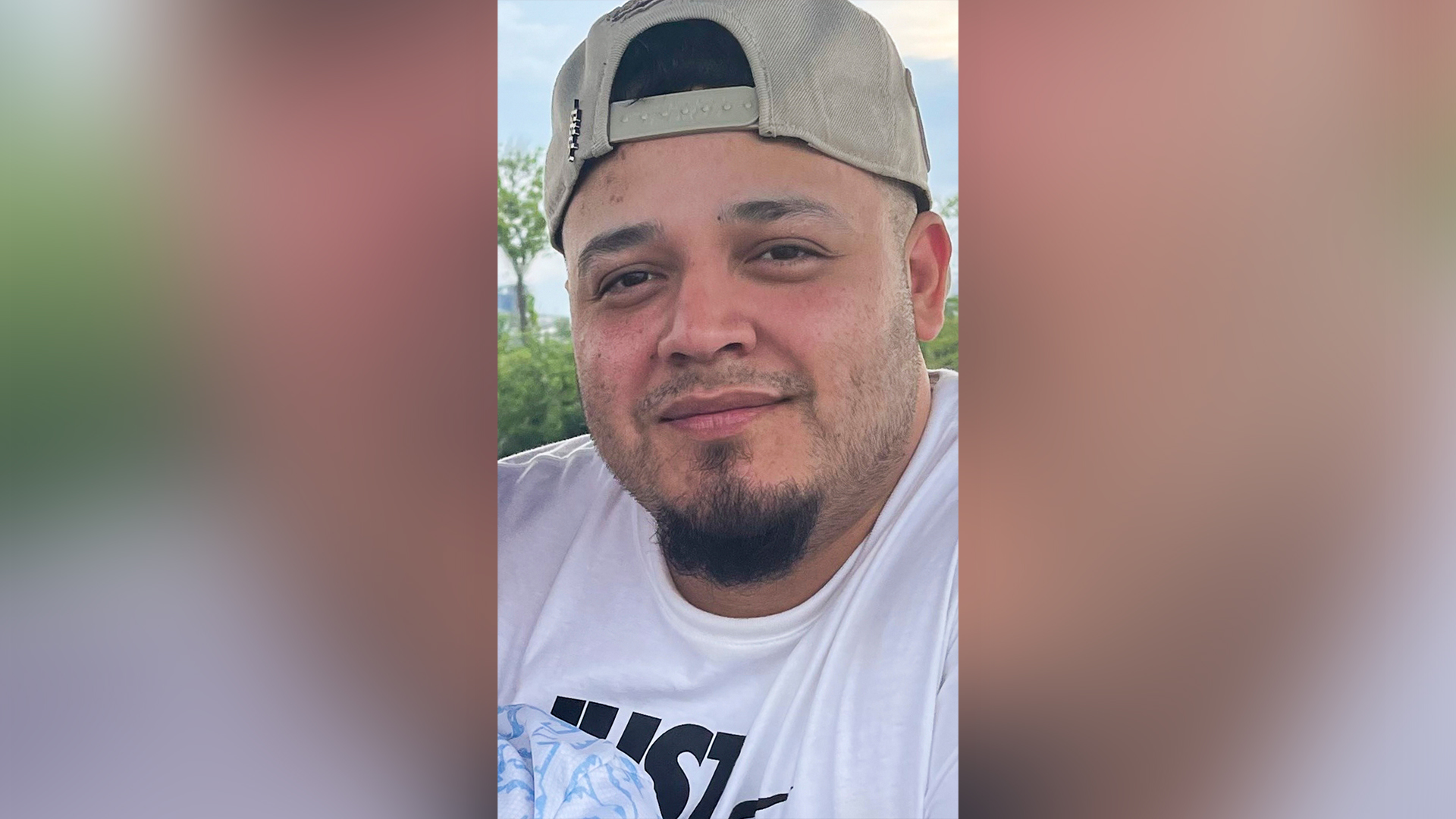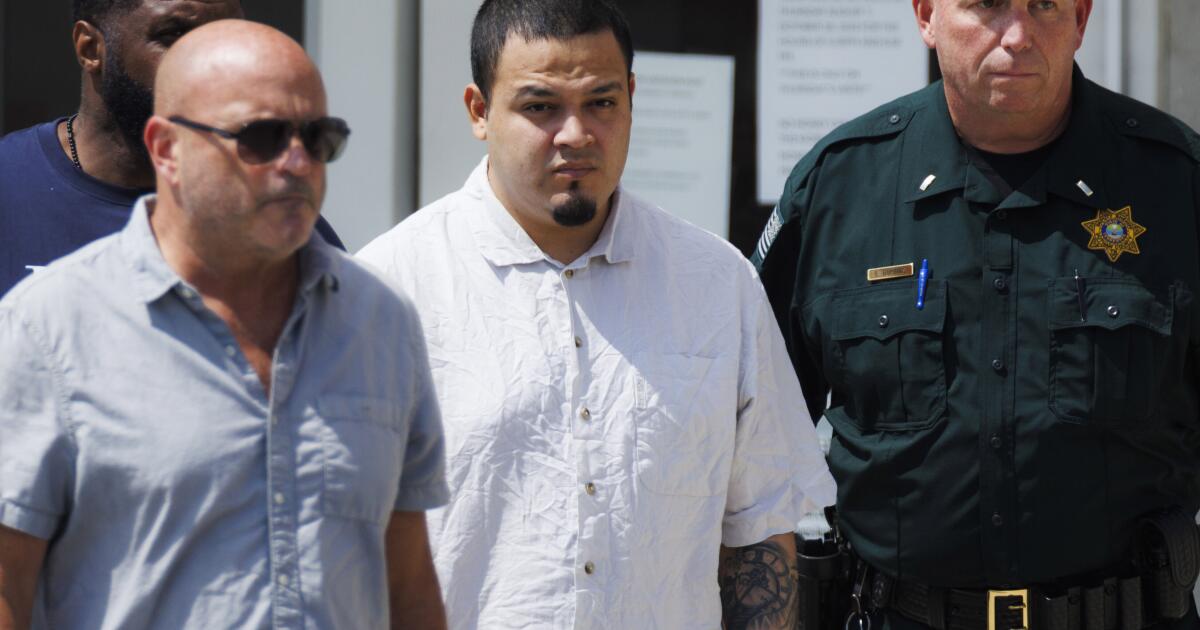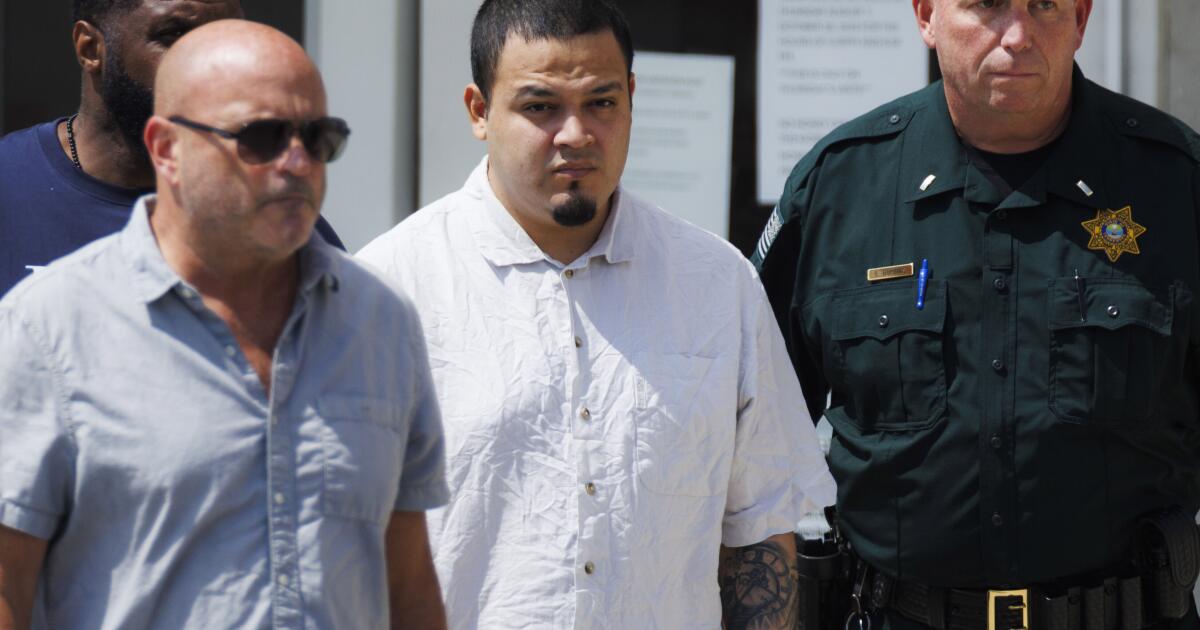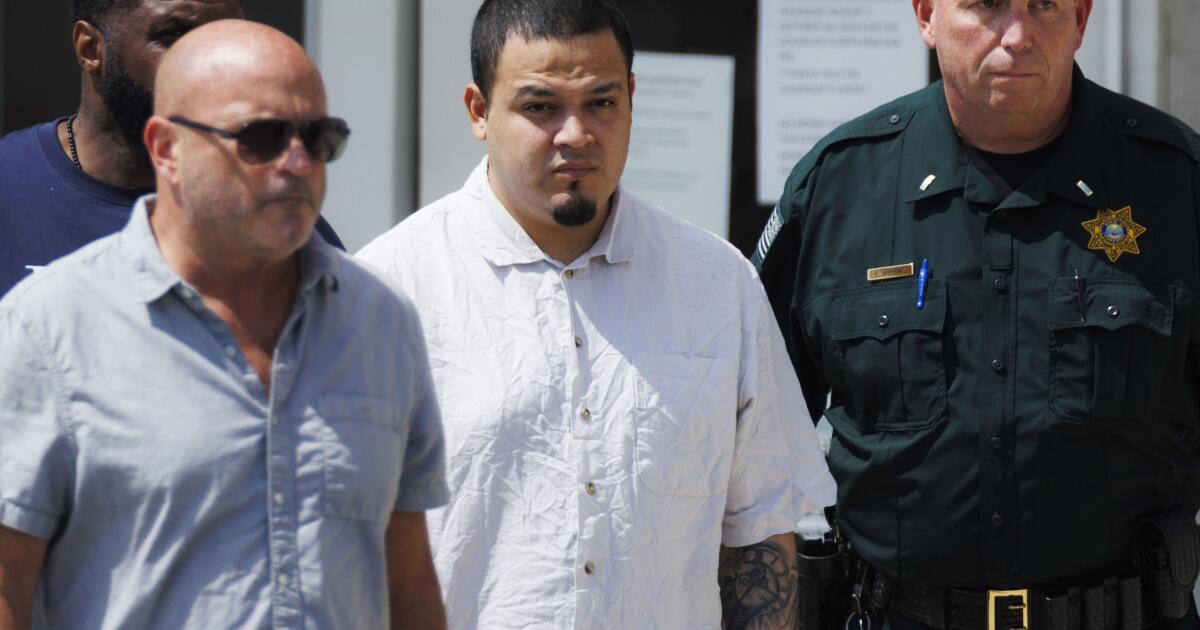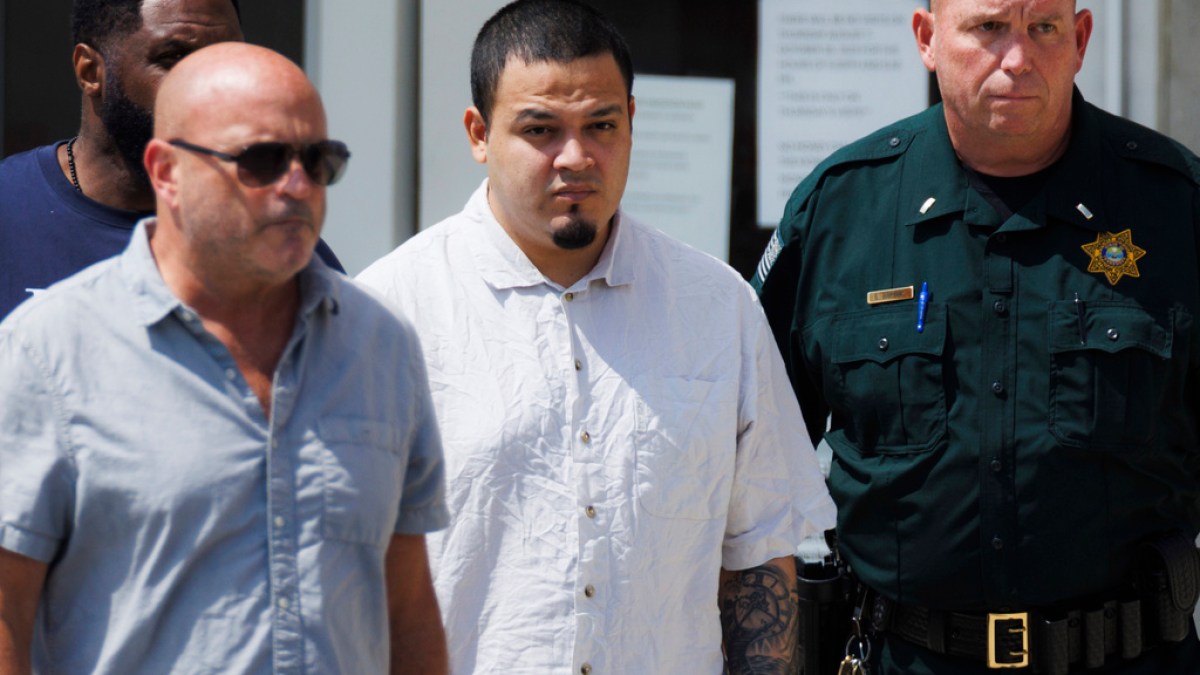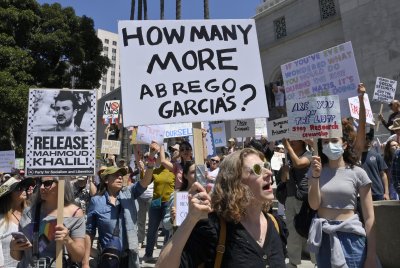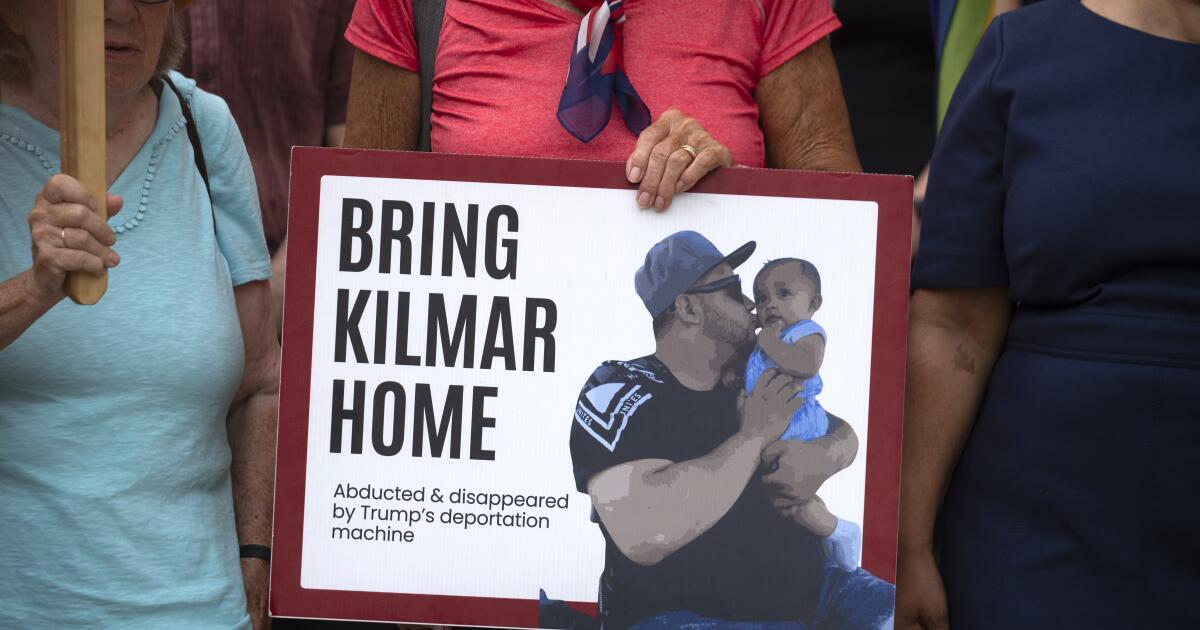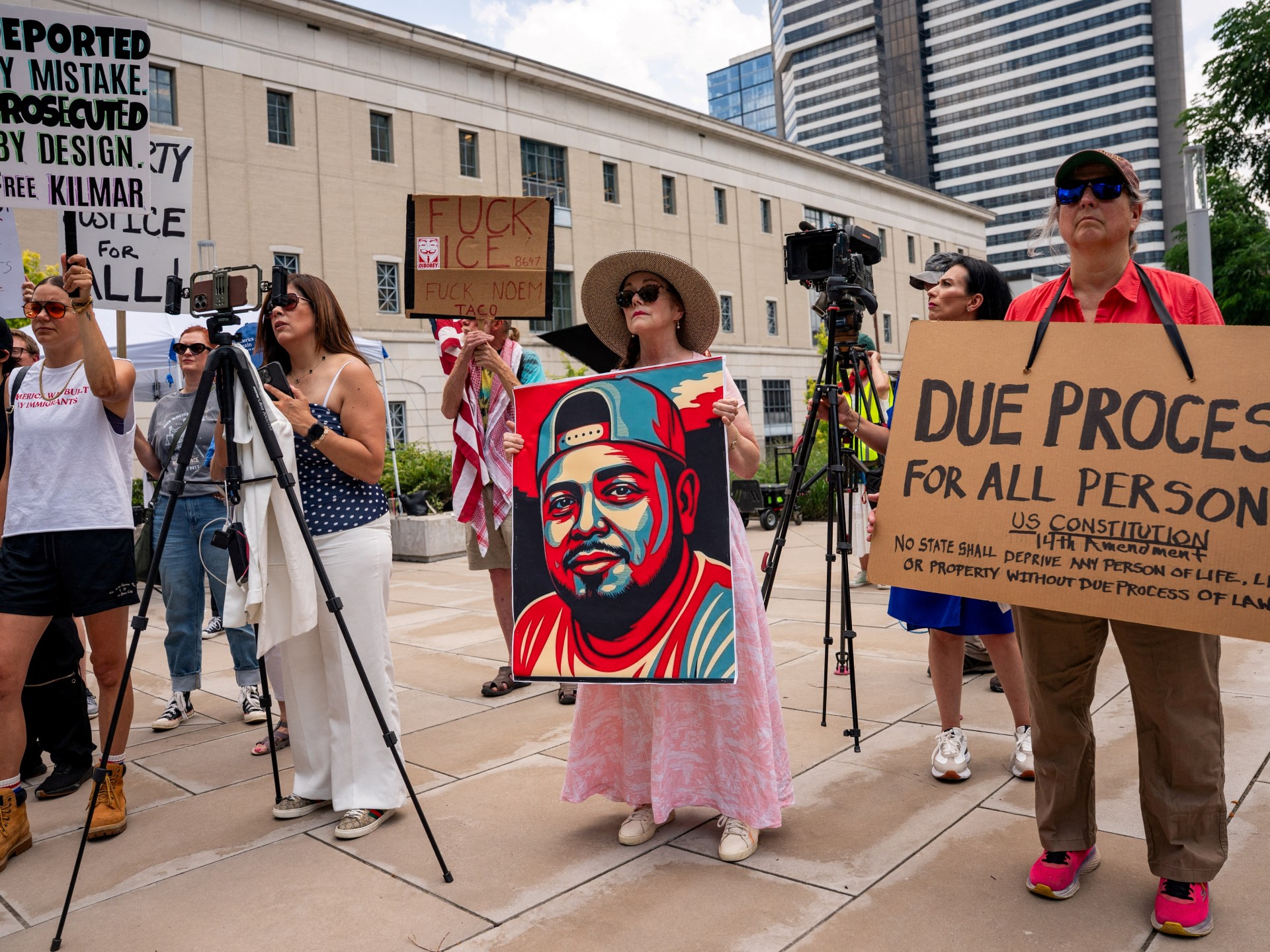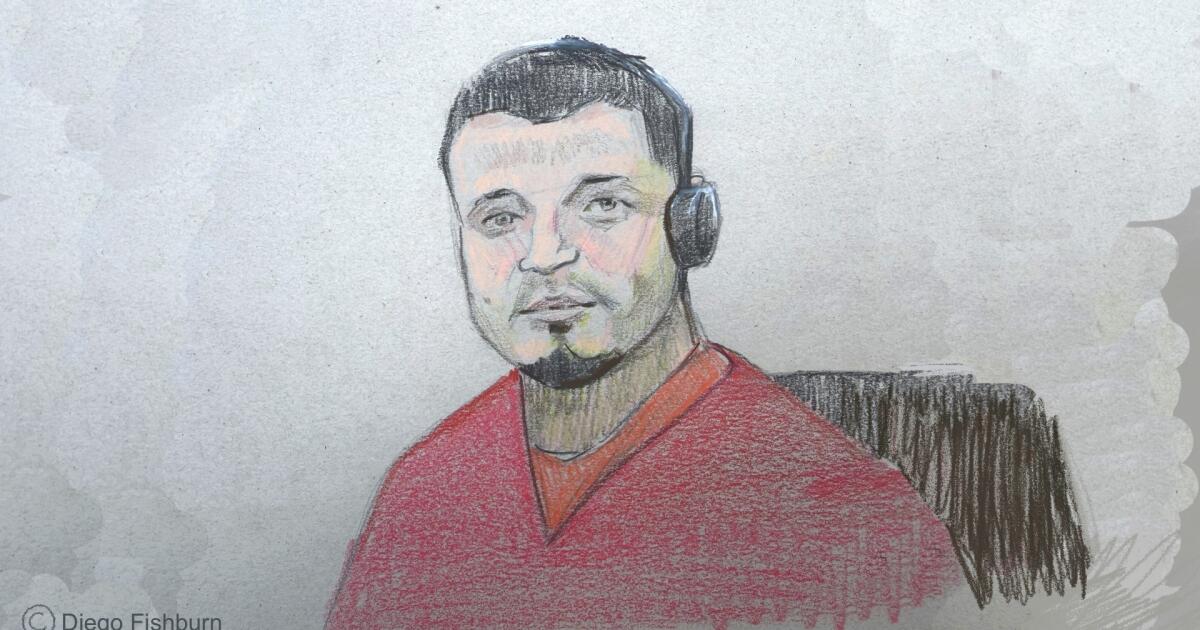Kilmar Abrego Garcia, who’s at the center of an ongoing immigration feud with the Trump administration, faces the possibility of deportation to Uganda, just a day after being released from a Tennessee jail.
Court documents Saturday showed President Trump’s administration plans to deport Abrego Garcia to Uganda after he turned down an offer to be sent to Costa Rica if he pleaded guilty to human smuggling charges.
His case has attracted attention amid Trump’s immigration crackdown when he was mistakenly deported in March. Facing a court order, the Trump administration brought him back to the U.S. in June, only to detain him on human smuggling charges, which the Maryland resident denies.
Simon Sandoval-Moshenberg, Abrego Garcia’s lead attorney in his lawsuit against the Trump administration, said in a statement Saturday that the government is trying to use the immigration system to punish his client by “attempting to send him halfway across the world, to a country with documented human rights abuses and where he does not even speak the language.”
Abrego Garcia’s attorney’s court filings show the administration requested he appear at an immigration facility in Baltimore on Monday and could be deported again.
In a statement Friday at his release, Abrego Garcia said he saw his family for the first time in more than five months.
“We are steps closer to justice, but justice has not been fully served,” he added.
Homeland Security Secretary Kristi Noem denounced the decision to free Abrego Garcia, stating that the administration will not stop fighting until he’s out of the U.S.
The Trump administration casts him as an MS-13 gang member and immigrant smuggler.
Abrego Garcia and his attorneys reject those claims. They portray him as a family man and construction worker who was arbitrarily deported and vindictively charged.
As his story takes yet another turn, here’s what to know:
The Costa Rica-Uganda offer
The Costa Rica offer came late Thursday and included a requirement that he remain in jail, according to a brief filed in Tennessee, where the criminal case was brought. After Abrego Garcia left jail Friday, Immigration and Customs Enforcement told his attorneys he would be deported to Uganda and should report to immigration authorities Monday.
Later Friday, the government told Abrego Garcia he has until first thing Monday to accept a plea in exchange for deportation to Costa Rica, or else that offer will be off the table, his defense attorneys wrote.
They declined to say whether he is still considering the offer.
Filed along with the court brief was a letter from the Costa Rican government stating that Abrego Garcia would be welcomed to that country as a legal immigrant and wouldn’t face the possibility of detention.
Justice Department spokesperson Chad Gilmartin responded to the brief with a statement saying, “A federal grand jury has charged Abrego Garcia with serious federal crimes … underscoring the clear danger this defendant presents to the community. This defendant can plead guilty and accept responsibility or stand trial before a jury. Either way, we will hold Abrego Garcia accountable and protect the American people.”
The Department of Homeland Security notified his attorneys that he should report to immigration authorities on Monday in Baltimore to face deportation.
Uganda has agreed to a deal to accept certain migrants being deported from the United States.
‘Well-founded fear’ of returning to El Salvador
Abrego Garcia, 30, grew up in El Salvador and fled at 16 because a local gang extorted from and terrorized his family, court records state. He traveled to Maryland, where his brother lives as a U.S. citizen, but was not authorized to stay.
Abrego Garcia found work in construction and met his future wife, Jennifer Vasquez Sura. In 2018, he moved in with her and her two children after she became pregnant with their child.
In March 2019, Abrego Garcia went to a Home Depot seeking work as a laborer when he was detained by local police, court records state. He was suspected of being in MS-13, based on tattoos and clothing.
A criminal informant told police Abrego Garcia was in MS-13, court records state, but police did not charge him and turned him over to ICE.
A U.S. immigration judge denied Abrego Garcia’s subsequent asylum claim because more than a year had passed since his arrival. But the judge granted him protection from being deported to El Salvador, determining he had a “well-founded fear” of gang persecution there, court records state.
Abrego Garcia was released and placed under federal supervision. He received a federal work permit and checked in with ICE each year, his lawyers said.
‘Audacity to fight back’
In February, the Trump administration designated MS-13 a foreign terrorist organization. In March, it deported Abrego Garcia to a prison in El Salvador, violating the U.S. immigration judge’s 2019 order.
Abrego Garcia later claimed in court documents that he was beaten and psychologically tortured while held at the Terrorism Confinement Center, known as CECOT. Salvadoran President Nayib Bukele denied the allegations.
The Trump administration described its violation of the immigration judge’s 2019 order as an administrative error. Trump and other officials reiterated claims that Abrego Garcia was in MS-13.
Vasquez Sura filed a lawsuit to bring her husband back. The Trump administration returned Abrego Garcia to the U.S. in June after a Supreme Court order. But it brought human smuggling charges against him.
The smuggling case stems from a 2022 traffic stop for speeding, during which Abrego Garcia was driving with nine passengers. Tennessee police suspected human smuggling, but allowed him to drive on and didn’t charge him.
Abrego Garcia pleaded not guilty.
His lawyers filed a motion to dismiss the case based on “vindictive and selective prosecution.”
Deportation fears realized
U.S. Magistrate Barbara Holmes in Nashville ruled in June that Abrego Garcia has a right to be released from jail while he awaits trial.
But Abrego Garcia remained in a Tennessee jail at his attorneys’ request for about 11 weeks over fears that ICE would immediately try to deport him.
Thomas Giles, an assistant director for ICE, testified in July that Abrego Garcia would be detained as soon as he’s freed.
U.S. officials argued Abrego Garcia can be deported because he came to the U.S. illegally and because an immigration judge deemed him eligible for expulsion in 2019, just not to his native El Salvador.
Judge provides some protections
In response to concerns Abrego Garcia would be deported without due process, U.S. District Judge Paula Xinis prohibited ICE from immediately detaining him upon release in Tennessee.
Xinis, overseeing the lawsuit in Maryland, ordered restrictions on ICE in late July. She required any removal proceedings begin in Baltimore.
Xinis also ordered that ICE provide three business days’ notice if it intends to initiate removal proceedings.
The Trump administration has “done little to assure the Court that, absent intervention, Abrego Garcia’s due process rights will be protected,” Xinis wrote.
Electronic monitoring and home detention
Soon after Xinis’ order, Abrego Garcia’s attorneys asked the federal judge in Tennessee to release him.
Holmes, the U.S. magistrate in Nashville, released him Friday, requiring Abrego Garcia to stay with his brother in Maryland and be subjected to electronic monitoring and home detention.
Finley and Catalini write for the Associated Press. AP writer Travis Loller in Nashville contributed to this report.
